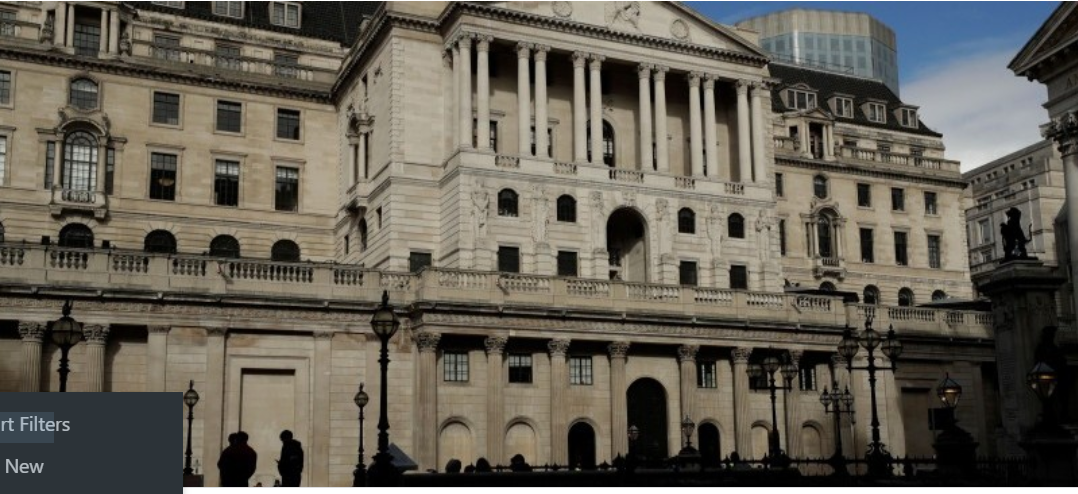For nogle måneder siden advarede Saxo Bank om, at Storbritannien havner i en recession. Nu er ingen længere i tvivl. Bank of Englands prognoser til 2025 er rystende. Storbritannien står over for en langvarig recession fra slutningen af i år, og meget lav vækst vil vare i flere pår. Ifølge Saxo Bank ligner Storbritannien mere og mere et Emerging Market, og det understreges f.eks. ved et stort fald af biler. Det tvinger Bank of England til at være forsigtig med rentestigninger. Med et kraftigt fald i indkomsten står briterne over for et brud i den sociale orden.
Uddrag fra Saxo Bank:
Emerging market Britain ?
Summary: In today’s ‘Macro Chartmania’, we give an update on the British economy. A few months ago, we warned the UK economy is one of the developed countries most likely to enter into a recession. There is no debate about it anymore. Last week, the Bank of England updated its macroeconomic forecasts for the years until 2025. These are frightening. The United Kingdom is projected to enter into a recession in Q4 2022. This could last five quarters and cause GDP to fall about 2.1 % – as deep as the recession of the early 1990s. But this is not the worst. Very often, the economy rebounds quite sharply after a recession. This is unlikely to happen this time. The slump will last. The BoE sees GDP still 1.75 % below today’s levels in mid-2025.
Click here to download this week’s full edition of Macro Chartmania composed of more than 100 charts to track the latest macroeconomic and market developments. All the data are collected from Macrobond and updated each week.
The United Kingdom is more and more looking like an emerging market country:
Political instability (the new Prime Minister will be announced on 5 September after Boris Johnson’s resignation), trade disruptions (due to Brexit and Covid-related bottlenecks), energy crisis (the risk of a blackout this winter is real) and high inflation (the Bank of England forecasts that UK CPI will peak at 13 % in October but this is certainly a bit optimistic) are all hurting the UK economy. The only major difference : there is no currency crisis. The sterling pound exchange rate is rather stable. It only dropped 0.70 % against the euro and 1.50 % against the U.S. dollar over the past week. Our bet : after surviving Brexit uncertainty, we don’t see what could push the sterling pound into a free fall. All the leading indicators point in the same direction :
The worst is yet to come for the British economy.
There is a consensus among economists about that very fact. The OECD’s leading indicator for the United Kingdom, which is supposed to anticipate reversals in the economy six to nine months in advance, fell to 98.6 in June. The annual rate was 7.3 % in June 2021 (partially reflecting the post-lockdown rebound). It now stands at minus 2.9 %. The change is impressive over a year. This is not only linked to Covid data noise. This is a clear sign that a recession is coming. In addition, new car registrations, which are often considered as a leading indicator of the overall UK economy, continue to drop.
This also reflects the deep collapse in consumer confidence (see chart below). In July 2021, after the peak of the pandemic, new car registrations stood at 1,835,000. They now stand at 1,528,000, a sharp drop of 14%. This is the lowest level since the end of the 1970s. The recession will be long and deep. There won’t be an easy escape. This is the most worrying, in our view. The Bank of England assesses the slump will last with GDP still 1.75 % below today’s levels in mid-2025. What Brexit has not done by itself, Brexit coupled with Covid and high inflation have succeeded in doing. The UK economy is crushed.
The window for further rate hikes is closing :
Last week, the Bank of England hiked interest rates by 50 basis points, from 1.25 % to 1.75 %. We think the Bank of England’s next rate hike in September (probably of 50 basis points) could be the last. Outside of the jobs markets, there are signs that some of the key inflation drivers may be starting to ease. In addition, the prospect of a long recession (five negative quarters of GDP starting in Q4 2022 all the way through to Q4 2023) will certainly push the Bank of England into a wait-and-see position. On the topic of balance sheet reduction, we don’t expect any changes in the medium-term. Gilt sales will begin shortly after the September meeting. They will amount to £10bn per quarter the first year (this amount will be revised each year).
We think the Bank of England has a rather traditional approach to deal with the current macroeconomic situation. Domestic demand must be slowed down by pushing GDP below its potential level, thus increasing unemployment and lowering inflation. A key rate of 2.25 % could already have a noticeable positive impact on the overall inflation dynamics, in our view. However, this is too early to know whether the current tightening cycle will definitely be over in September. The inflation dynamics have been a bit unpredictable in recent months. This is the least we can say.
The social contract is broken :
Imagine the graduate entering the workforce in 2009/10, who will have been told this was a once-in-a-lifetime crash. They are now in their early 30s and having yet another once-in-a-lifetime economic crisis. They faced an economy of suppressed wages, no housing prospects, two years of socializing lost to lockdown, obscene energy bills and rent and now a lengthy recession. This will lead to more poverty and despair.











